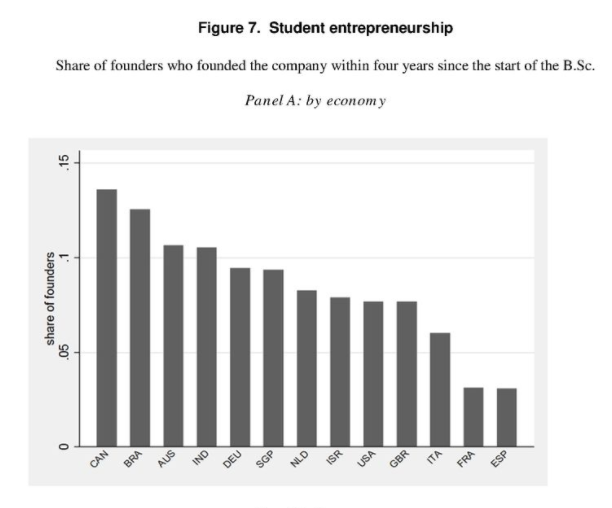The Canadian tech sector has two modes: self-hype and self-pity. Neither is very pretty.
You may recently have seen articles floating around the internet talking about how great Canada is as a tech destination, how Canada is “winning”/ can “win” the AI race (whatever the hell that is supposed to mean – the verb “to win” takes on vast new meanings in these articles). There’s been one every two weeks or so, often from big American magazines, for the last year or so and it always gets bandied around on tech/#innovation twitter along with some “look at us, we rock!” kind of message.
I always say look carefully, though. Usually, they are published in Canadian outlets, not American ones – that is, it’s us telling ourselves how great we are. On the odd occasion they are published by an America outlet, they’re often written by someone in Toronto who has a lot to gain by pushing the Canada-is-a-Tech-Superpower line (e.g. this one earlier this year in Forbes from someone at MaRS).
Our desire to tell ourselves how great we are hit some ridiculous new highs last week when a story started making the rounds that “Canadian Students Found the Most Start-ups in the World.” What really seems to have got everyone going is the following graph from an OECD paper on entrepreneurship
Look, see! Canada is on the left! It is the highest! That means we have the most! Right?
Well, no. Time to slay this nonsensical meme in the bud before it becomes one of those zombie stats like “there are 300,000 Canadians in Silicon Valley”. The database being used is something called Crunchbase, which does collect data on companies and founders, but is by no means comprehensive, especially when it comes to founders’ CVs. What this graph actually shows is that of the companies listed on Crunchbase for which CVs are available (19,624 out of 447,000 companies in the database), Canada has the highest proportion of companies founded by people under the age of 22. The sample for Canada, by the way, is a little over 600 companies. Of which, apparently, roughly 95 were founded by young people. This is not a stat anyone with a set of minimally-functioning neurons should want to hang their hat upon. But in Canadian IT, hype is a major currency so I have no doubt we will see this trotted out again soon.
But maybe even worse than the self-hype is the self-pity. I have pointed out before how Canadian tech gurus seem to weirdly believe that their industry is both unbelievably awesome and that they need government assistance to convince people to enter it. I’ve also ben loudly and publicly critical of the folks at the Canadian Council of Innovators (CCI) for whining about how government should lower their recruitment costs by charging tech students thousands of dollars to “repay their tuition” if they had the temerity to leave the country and look for a job outside the country (because if there’s one thing the fiercely entrepreneurial tech industry loves it’s government intervention to lower the price of labour).
I got a half-apology (and a latte) out of CCI for that latter article, but they seem to be sidling up to that concept again. Here’s a piece from last weekend’s Globe by CCI Board member and tech CEO Adam Froman, effectively wondering why on earth doesn’t the Government/universities do something to stop brain drain? The sole piece of evidence offered for the existence of a brain drain is the statement “based on the 2017 University of Waterloo graduating class profile, 60 per cent of software-development engineers left for the United States.” (Software engineers at Waterloo make up about 5% of total Waterloo math/engineering enrolment, which in turn makes up about 20% of total Math/Engineering enrolment in the province, so we’re talking about a 1% sub-section of the Eng/Tech student population). Among the solutions proposed are: widen the pipeline for tech talent (which, as I showed last week, universities are already doing in spades) and “address the importance of helping Canadian scale-ups to fill their job openings with top graduates coming out of our universities” which is either a meaningless statement or code for wage subsidies.
You know what would keep tech talent in Canada? Higher pay. It’s well-known that the Canadian IT sector is badly paid compared to the US. Before coming to government and universities asking for help, maybe the sector should get its own house in order.
Yet this is the sector to which our Innovation Minister kowtows. This is the sector we’re all supposed to emulate because it’s so fearless, entrepreneurial and data-driven. And yet it’s none of those things.
Maybe we ought to be looking to other sectors for growth in this country. Self-pity and self-hype may be infinitely renewable resources, but I don’t see how you can build an economy on them.


 Tweet this post
Tweet this post
